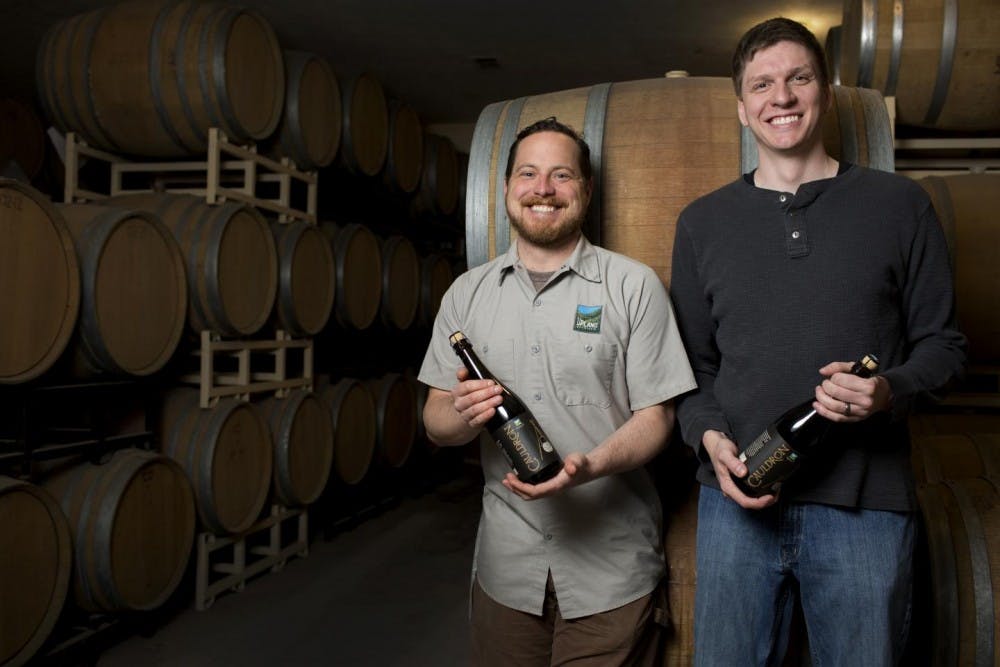IU researchers have found what could be a solution to “terminal acid shock” in craft brewing.
The researchers used beer developed by Upland Brewing Co. in an experiment, which found conditions, such as high acidity, can inhibit the successful production of brewing, according to an IU press release.
Such conditions threaten yeast used in the production of sour beers, according to the release.
The research, appearing in the journal Food Microbiology, proposed incubation as a possible method to overcome terminal acid shock, which occurs after fermentation and before bottling, when extra yeast is added to beer to create carbonation.
Matthew Bochman, a lead author of the research paper, is a craft brewing consultant and an assistant professor in the Department of Molecular and Cellular Biochemistry.
Bochman is also the recipient of a $13,000 grant from the Johnson Center for Innovation and Translational Research at IU.
He said in the release the study shows pre-adapting yeast can ensure proper bottle conditioning of sour beers.
“Simply using untreated dry yeast or yeast rehydrated in water alone should be used with caution in the production of ‘extreme beers’ such as sours,” Bochman said in the release.
Terminal acid shock does not typically affect large commercial breweries that use a forced carbonation method.
Upland Brewing had previously attempted to brew its own sour beer called “Cauldron,” which failed two consecutive years because of bottling complications, according to the release.
In the most recent study, IU researchers exposed six strains of brewer’s yeast to organic acids produced by bacteria in the brewing process to observe the reactions of each pairing.
The researchers found beer-yeast and Champagne-yeast strains were least affected by changes in acidity, according to the release.
“Our analysis revealed that terminal acid shock was not completely lethal to the yeast’s cells, although nearly a third of the yeast died in some experiments,” Bochman said in the release. “The acid did, however, significantly inhibit the metabolism of the surviving yeast.”
This slowed metabolism is responsible for the failure of a microbial release of carbon dioxide during the bottling process, which is how carbonation is created in beer.
However, the researchers’ observations that nearly two thirds of the study’s yeast survived led to finding the microorganism could be revived through incubation.
“Normally breweries simply re-hydrate dry yeast with water and sugar prior to bottling, but sours are too harsh,” Bochman said in the release.
He added exposing yeast to a mixture of the nutritionally dense substance YPD and uncarbonated beer a day before bottling could strengthen yeast microbes enough to survive an environment of high acidity.
As sour beers grow in popularity, the bottling method could become increasingly important, Bochman said in the release.
“The results of his research helped remedy a real technical dilemma in bottle conditioning of our sour beers,” said Caleb Staton, director of sour operations at Upland Brewing.
Carley Lanich






